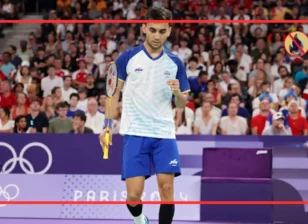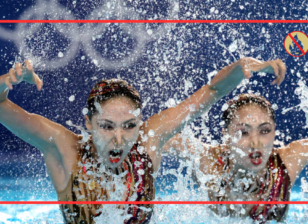Why Is Sportswashing A Global Problem: Exploring Its Widespread Impact?
In the contemporary global landscape, sport serves as a unifying force that transcends borders, cultures, and politics. It has the unique ability to inspire, entertain, and bring people together, enhancing the global image of nations. Yet, behind this glittering façade lies a deeper and more intricate issue known as Sportswashing. This article delves into the widespread impact of Sportswashing, exploring its dangers, consequences, and ethical concerns within the realms of international relations and human rights.
Understanding Sportswashing and its Evolution
Sportswashing, a portmanteau of “sport” and “whitewashing,” refers to the practice of leveraging positive values associated with sports. Such as fair competition, teamwork, and unity, to deflect attention from underlying political, social, and human rights issues. It involves the utilisation of international sporting events, high-profile sports franchises. The sponsoring of prominent athletes as a means to create a favorable image and mask controversial actions or human rights abuses. The concept has evolved over time, intertwining with the realms of politics, diplomacy, and propaganda, presenting a complex web of ethical challenges and geopolitical implications.
The Glittering Façade: How Sportswashing Enhances Global Image
Hosting major sporting events or aligning with high-profile sports franchises has become a common strategy for nations seeking to bolster their international standing. Such endeavours not only attract global attention but also create a favorable image, showcasing the hosting nation as a capable and modernised entity on the world stage. This use of sport as a diplomatic tool, often termed as sports diplomacy, allows countries to forge strategic international relations and boost their soft power influence.
Unveiling the Darker Phenomenon: The Dangers and Consequences
Despite the positive aura surrounding sportswashing, its darker phenomenon cannot be overlooked. The glittering façade often conceals underlying issues, enabling governments to deflect attention from crucial matters such as political repression, social injustices, or human rights abuses. By associating themselves with renowned sporting events or sponsoring celebrated athletes. Governments can manipulate public perception, whitewashing their tarnished reputation and creating an illusion of progress and stability.
Ethical Concerns in Sportswashing: Unravelling the Controversial Actions
The utilization of sport as a tool for political agendas raises significant ethical concerns. Such actions not only undermine the true essence of sportsmanship but also blur the line between genuine sports enthusiasm and calculated propaganda. The instrumentalities of athletic achievements to overshadow systemic issues or human rights violations questions the integrity of sporting events. It compromises the values of fair play and genuine competition.
Impact on International Relations: Unravelling the Complex Dynamics
Sportswashing’s impact on international relations is multifaceted. While it can serve as a means to bridge cultural gaps and foster diplomacy, its misapplication may strain diplomatic ties and raise scepticism among the global community. Nations engaging in Sportswashing practices risk facing international scrutiny and condemnation. As their actions may be perceived as manipulative attempts to distract from crucial societal issues, thereby eroding trust and credibility in the international arena.
Sportswashing and Human Rights: Exposing the Real Cost
One of the most significant casualties of Sportswashing is the compromise of human rights. Governments employing sport as a tool for distraction often neglect or violate the rights of their citizens. The pursuit of hosting major sporting events or sponsoring prominent athletes may divert resources and attention away from critical social and humanitarian needs, exacerbating existing inequalities and human rights abuses.
Reshaping the Narrative: Combating Sportswashing Through Transparency and Accountability
To address the ethical concerns associated with Sportswashing, a collective effort is required from the global sports community, governing bodies, and international organisations. Implementing stringent regulations and transparency measures can help ensure that the hosting of major sporting events aligns with ethical standards. It does not serve as a mask for underlying political agendas or human rights violations. Holding nations and entities accountable for their actions is crucial in maintaining the integrity of sports and upholding the values of fair play and genuine competition.
Conclusion
In conclusion, while sport serves as a unifying force and promotes positive values such as teamwork and unity, its exploitation through Sportswashing poses significant risks and ethical dilemmas. The glittering façade of enhanced global image and diplomatic leverage often masks the darker phenomenon of deflecting attention from underlying political, social, and human rights issues. Recognizing and addressing the implications of Sportswashing is vital to uphold the integrity of sports. It promotes genuine international collaboration based on transparency, accountability, and respect for human rights.





